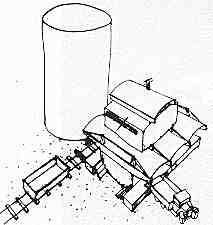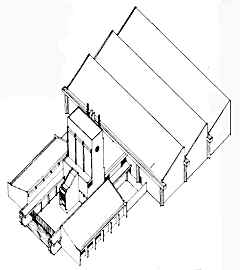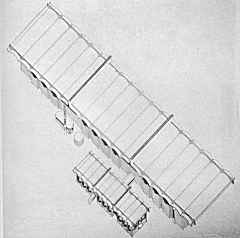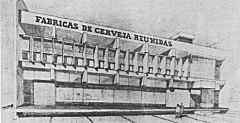| |
DÉCIMO
SEGUNDO LIVRO
A
HYPOTHETICAL INDUSTRIAL ZONE
 |
Some factories were the barest of sheds
which from small beginnings grew and grew all over their sites.
Many were no more than light roofs and walls to shelter quite large but
simple production lines. When the machines were exchanged for larger,
more productive ones, the factory would be doubled, the original machine
going on working until the new one would be ready to start. Then the old
machinery would be carefully dismantled to be reassembled elsewhere further
north in Mozambique in another factory.
Others were prestige jobs where everything had to
be right to begin with.
In most factories the spaces were required to be
free of interior supports. This was achieved by spanning the spaces with
light metal trusses and arches made up of angle irons or reinforcing rods,
and roofing them in asbestos cement or corrugated iron sheeting. In the
smallest town there was always a blacksmith who would cut the rods and
weld up the roof trusses for a song.
| Guilbey
Dicca, Destilaria, Marracuene |
 |
 |
Factory
for Batatas, Isando, Transvaal |
| Factory
for Cerveja Reunidas, Lhanguene, LM |
 |
|
|



